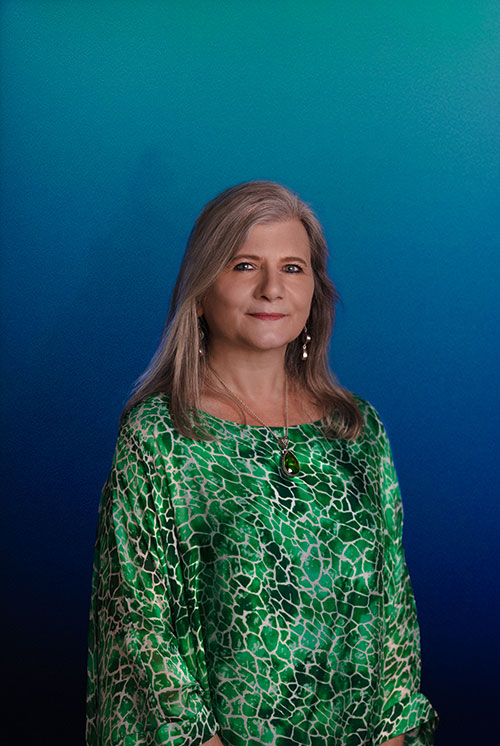Researcher Highlights
Subtle processes of exclusion and marginalisation
Penny Jane Burke

Equity is not only about lifting concrete barriers but is also about addressing historical exclusions and subtle processes in which the knowledge, experiences and cultures of some communities across the world have been marginalized and ignored, whilst others have been privileged and given prestige and status.
Equity in higher education poses serious challenges because it is bound up with long-standing and deeply entrenched historical inequalities. Our frameworks for equity must be designed with great sensitivity to the profound impact of historically embedded inequalities.
Higher education is historically a space of exclusion - who is seen as having the right to higher education is attached to constructions of potential and capability that value certain histories, knowledge and ways of being and exclude others.
THE POLITICS OF DIFFERENCE AND RECOGNITION
We often think about equity as about providing ‘fair access’ and treating everyone the same. Research foregrounds that we need to be sensitive to difference in the ways we develop both research and practice.
It is imperative to challenge deficit constructions associated with equity. Categorisations are a useful device to identify an appropriate target group for the redistribution of resources, but also contribute to the perpetuation of social divisions and hierarchies through reducing that person or group to one aspect of identity, often in ways that reinforce stigma.
Research has the capacity to shed light on and thus challenge the damaging cycles of misrecognition and misrepresentation that serve to reproduce deep-seated inequalities in and through higher education. Through such research, we can develop inclusive, reflexive and participatory methodological and pedagogical frameworks that recognize, and work with, difference.
CONNECTING RESEARCH AND PRACTICE
Research uncovers that locating equity units at the peripheries of higher education, and failing to ensure that equity strategies and initiatives are institutionally embedded and research-informed, often has the unfortunate effect of reproducing inequalities.
Detaching equity from the main work of the university fails to embed a culture of inclusivity into institutional structures, practices and values.
This legacy of misrecognition shapes views of who can be a university student and restricts our imaginations about what is possible. As a result, precious resources are wasted and opportunities are missed to redistribute opportunities and life chances to those groups and communities who have been historically under-represented in higher education on multiple levels.
Building equitable higher education is imperative to all of our futures - growing inequalities pose a threat to all of us on multiple levels and higher education has a key role to play in ensuring more socially just and thus peaceful and stable societies into the future. The power of higher education is immeasurable and profound.
THE CENTRE OF EXCELLENCE FOR EQUITY IN HIGHER EDUCATION
The Centre of Excellence for Equity in Higher Education, established in 2015, takes a praxis-based approach to equity that brings interdisciplinary and critical research in dialogue with policy and practice, in reciprocal, interdisciplinary and collaborative frameworks.
The centre works with students and communities to develop innovative programs, that are intertwined with research to address the persistent, and often invisible, inequalities that significantly undermine life chances and prevent and limit access to and participation in higher education.
UNDERSTANDING THE IMPACT OF GENDER-BASED VIOLENCE ON ACCESS TO AND PARTICIPATION IN HIGHER EDUCATION
New research examines the impact of gender-based violence on access to and participation in higher education. No previous research has examined the question of equity in higher education through the prism of students who have suffered GBV across their lifetimes.
“The research recognises that higher education can be a space of the reproduction of gendered inequalities. However, higher education also offers the potential for transformation at personal, cultural and social levels. It can be a space to challenge or reinforce the cultures and practices that fuel gender-based violence. The research is beginning to illuminate a complex picture where university might be experienced as life-changing, or as a place of exclusion or indeed as a site of violence and trauma.” (Penny Jane Burke)
Professor Penny Jane Burke in the media:
- Professor Penny Jane Burke spoke with the Campus Review about a new Report on ‘Understanding the impact of gender-based violence on access to and participation in higher education’.
- Professor Penny Jane Burke spoke with the Newcastle Herald.
- University of Newcastle Newsroom article.
The University of Newcastle acknowledges the traditional custodians of the lands within our footprint areas: Awabakal, Darkinjung, Biripai, Worimi, Wonnarua, and Eora Nations. We also pay respect to the wisdom of our Elders past and present.
